Last week I spent most of my time in historical Charleston, specifically, walking up and down King Street. There’s a great bar called Gentry where Jesse and I ran into from out of a thunderstorm and laughed with the bartenders and the other patrons at the timing of the Heavens opening up. There’s a coffeeshop called Revelator. I’m not sure about the meaning behind the name, but the owner’s from Wisconsin, and the coffee is as good as Lyon Street in downtown Grand Rapids. It’s a great place to do some reading and writing. There’s Blue Bicycle Books where I bought a copy of On Writing Well by William Zinsser and have been underlining and saying, “Oh! I don’t do that. I better do that,” ever since. There’s a delightful and delicious Italian restaurant, and a few storefronts from there is a lounge with great big orange pillows to sit on while jazz plays, and palm trees sway overhead.
King Street is loud and vibrant and I loved walking around, and going in its stores and restaurants. I love the loudness of a city. I feel happy and at home in the roar and laughter and mischief, and I do not understand this part of myself, but I love it.
Hadley, Harper, and I were talking a couple of weeks ago about introverts and extraverts. Each summer, the three of us spend most of our hours together, and at its beginning, the three of us spend a week or two figuring each other out. Oh, that’s right – Hadley has to be doing something every second of the day or she will explode. Oh, that’s right – Harper can wander around the house singing, pick up a toy she hasn’t played with or looked at in half a decade, and spend the rest of the day, by herself, inventing a story or game with that toy. Oh, that’s right – Mommy loses her mind if she doesn’t have any time to herself and has to spend most of the day listening to poop and butt jokes.
We were in the car when the topic of introverts and extraverts came up. I told them I was going to tell them what these words mean, but that I didn’t want them to define themselves by them. “That’s dangerous, and I think it allows you to pigeonhole yourself,” I told them. “I don’t want you to say to yourself, ‘Well, I can’t do that because I’m this way.'” I told them there is nothing wrong with understanding a bit about yourself, because it helps you understand as well as accept and love others, too. However, I want Hadley to be surprised that she can sit for hours writing comic strips or short stories, and I want Harper to dance in front of a crowd and tell me she had so much fun that she had to “swallow a laugh.” I want them to have chances to do something that defies a slice of who they think they are.
I could’ve spent all my time wandering around King Street, but on our last day, Jesse said he wanted to go on a boat ride. That morning, we never set foot on King street, though we were just one block behind it. You’d never know. It was quiet save for the hush of the trees above us and every so often you’d hear dishes clanking from being put away after breakfast.
“This is exactly how Georgetown is,” I said to Jesse, snapping a few pictures. “Right behind Wisconsin?” I added. “You walk just a block or two, and you’d never hear that ruckus going on.” I remember the day I found that out. I’d been living in the DC area a little more than five years. Georgetown has always been my favorite place to be, specifically for traipsing around noisy Wisconsin, but one spring, some of my college friends and I rented a little townhouse for a weekend, and it was just two blocks short of where the Barnes and Noble used to be. I woke early one morning and went for a walk to get coffee, chuckling at the mystery of how quiet it was.
It seems duality is unsettling these days. You can’t be two things. Or three things. Or fifteen things. Which is the real Charleston? How can the city be loud and crazy and also quiet and serene? Is that OK? Can you walk around and enjoy all of it, find beauty in all of it, without that pull to resolve and define it all?
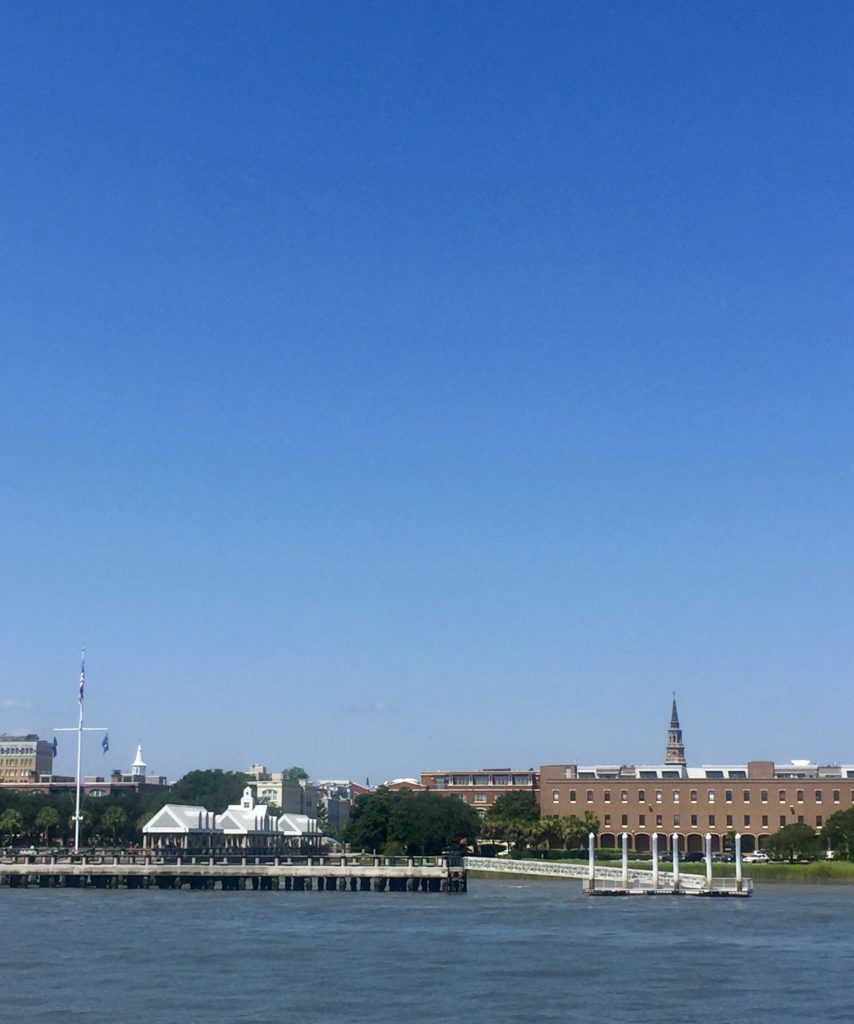 Charleston is called, “The Holy City,” and you can’t building anything higher than its many church steeples. Everyone needs to be able to see those steeples.
Charleston is called, “The Holy City,” and you can’t building anything higher than its many church steeples. Everyone needs to be able to see those steeples.
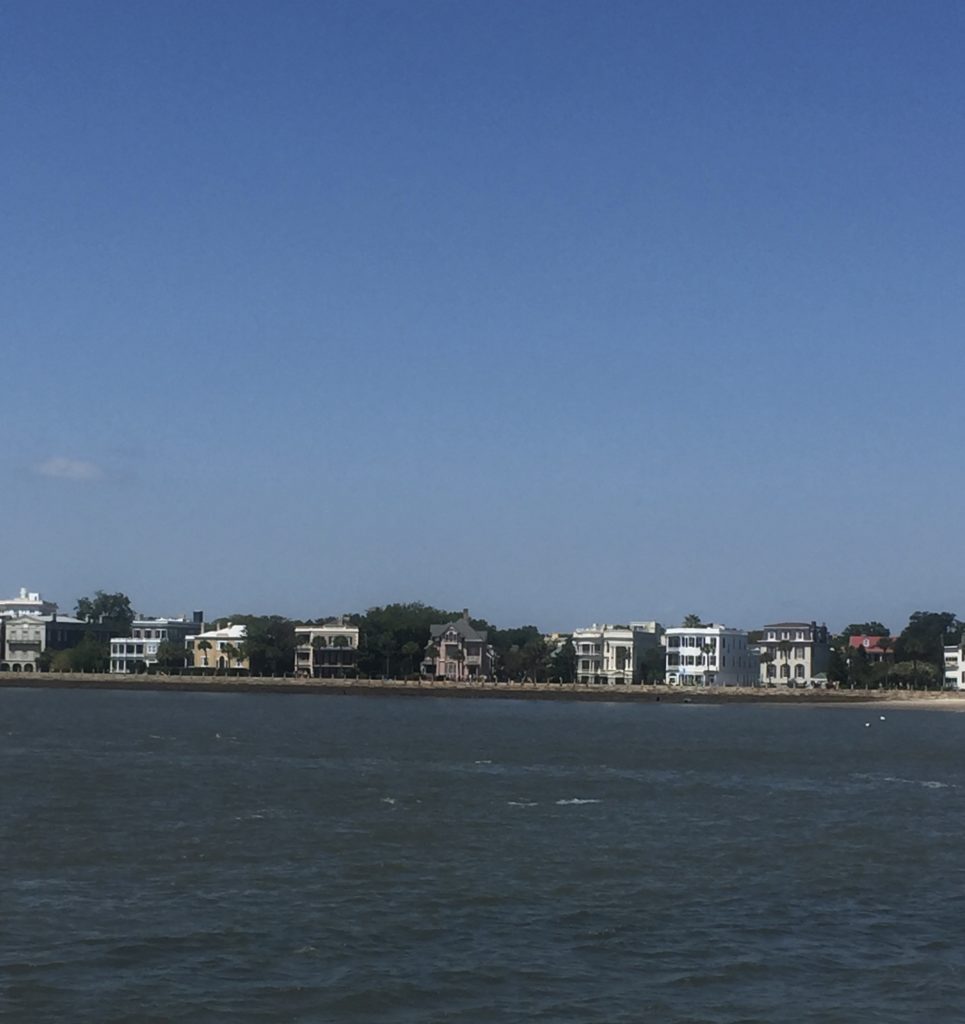 You can, however, build houses along its shoreline. Better to see the storm surge coming, I suppose. (“Micheal wasn’t nothin’,” a guy told us after
You can, however, build houses along its shoreline. Better to see the storm surge coming, I suppose. (“Micheal wasn’t nothin’,” a guy told us after Ross Geller Jesse asked about the safety of these homes during hurricanes. “You live through Hugo, you can live through anything,” he said.)
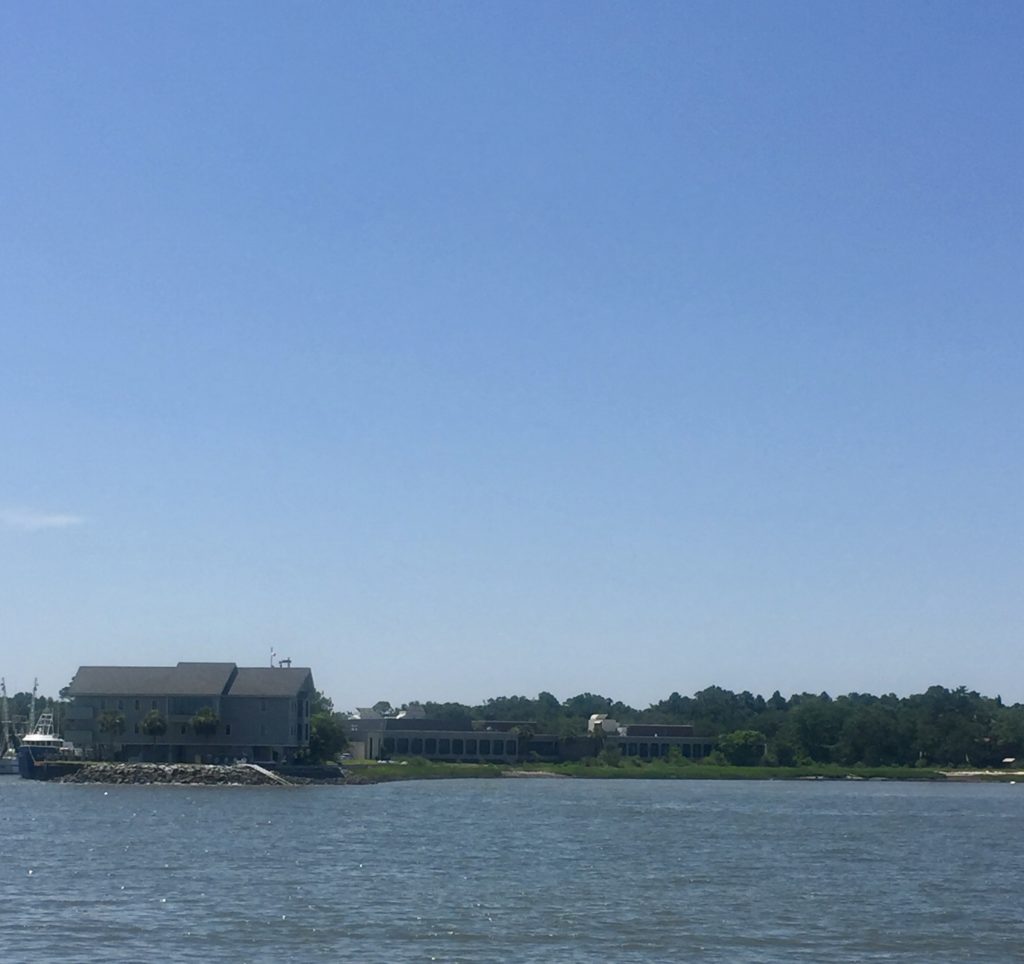 This is where the shot that began the Civil War was fired. This is also the place where Jesse had his meetings this week. One of those buildings is a NOAA building. He was working with a center that supports educating student scientists at minority institutions. “The goal is to get people from underrepresented groups to increase the diversity of the workforce and represent all different segments of society,” is what Dr. Feyen told me. “This is all very corporate speak,” he said.
This is where the shot that began the Civil War was fired. This is also the place where Jesse had his meetings this week. One of those buildings is a NOAA building. He was working with a center that supports educating student scientists at minority institutions. “The goal is to get people from underrepresented groups to increase the diversity of the workforce and represent all different segments of society,” is what Dr. Feyen told me. “This is all very corporate speak,” he said.
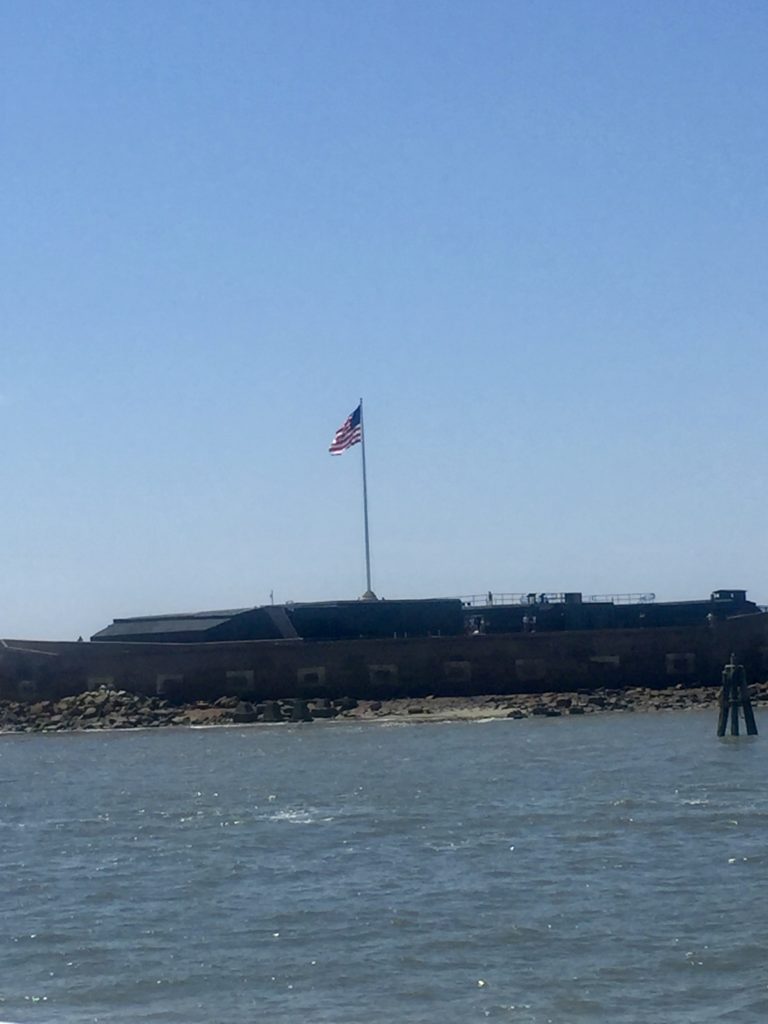 This is Fort Sumter. This is where the shots went. My understanding is this is where the North was, and the shots came from where Jesse was trying to defend science and everyone’s right to practice it. Seems soil can withstand a lot of change.
This is Fort Sumter. This is where the shots went. My understanding is this is where the North was, and the shots came from where Jesse was trying to defend science and everyone’s right to practice it. Seems soil can withstand a lot of change.
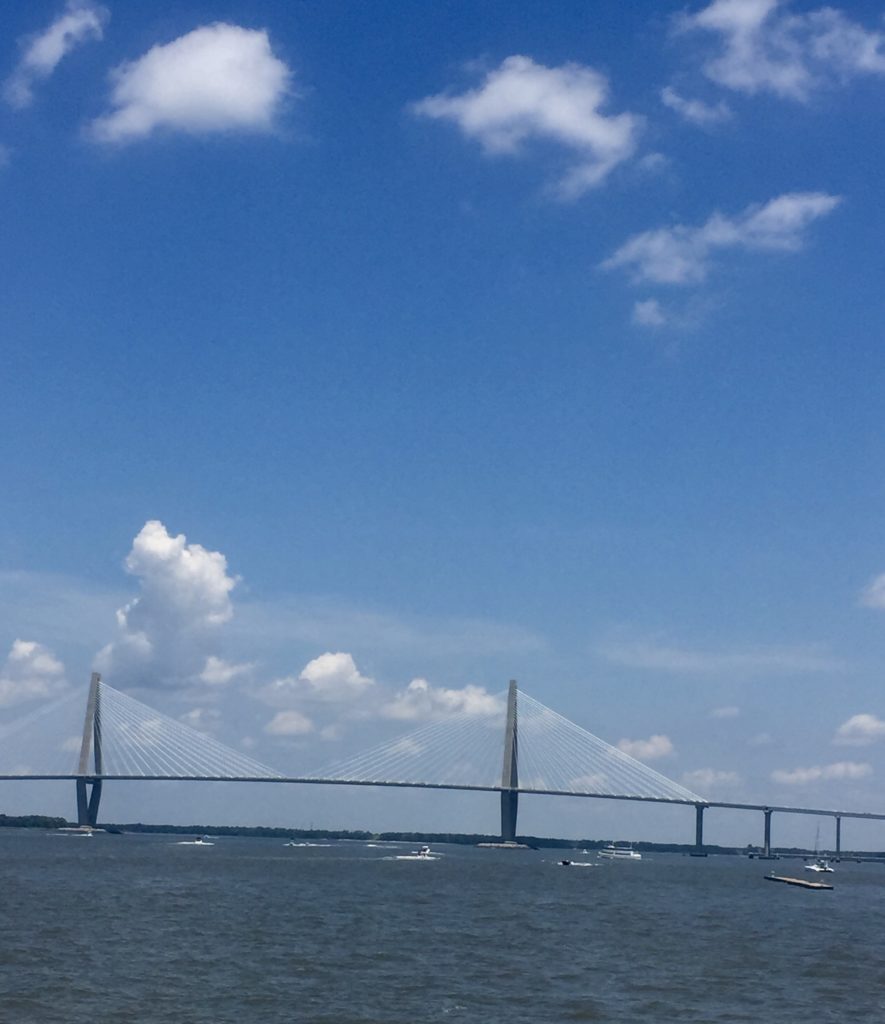 Here’s a bridge that’s pretty impressive. There are loads of details about this bridge: how and why it was built and what it can withstand, but what I found most impressive was the echo our boat made when we were underneath it.
Here’s a bridge that’s pretty impressive. There are loads of details about this bridge: how and why it was built and what it can withstand, but what I found most impressive was the echo our boat made when we were underneath it.
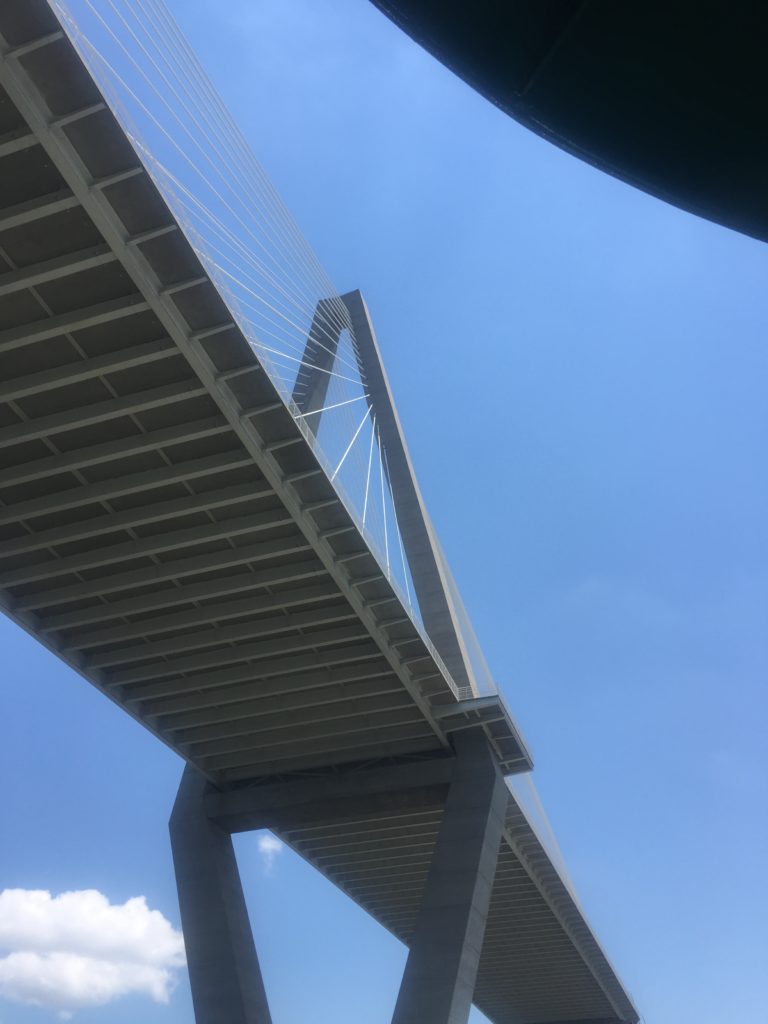
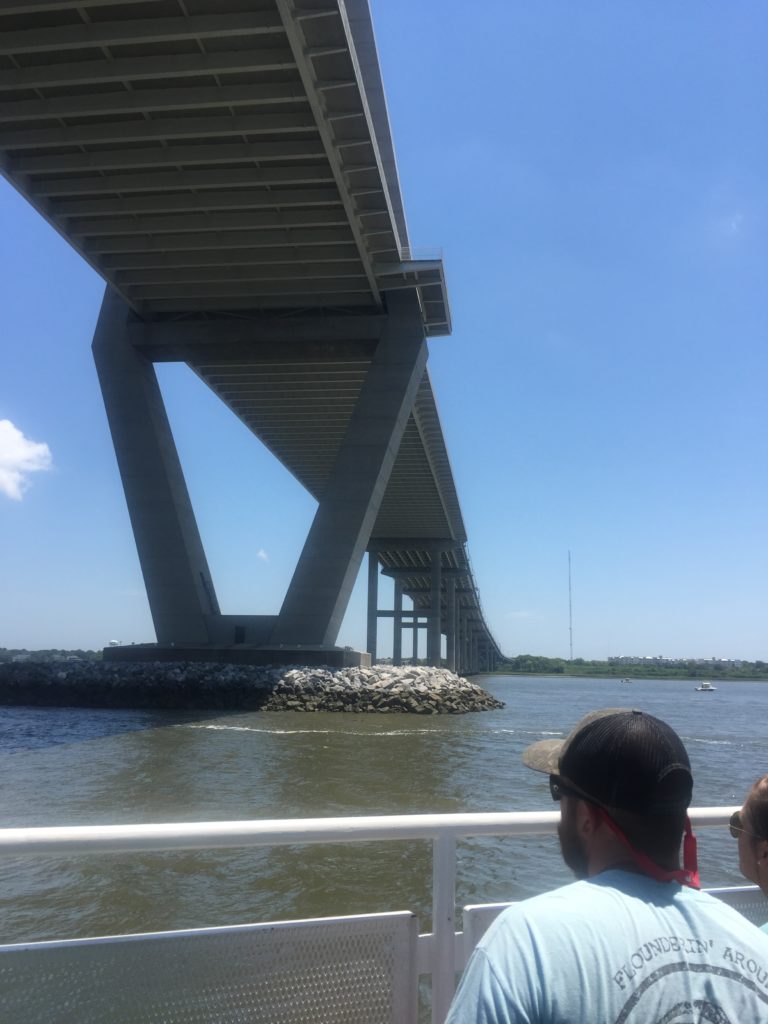
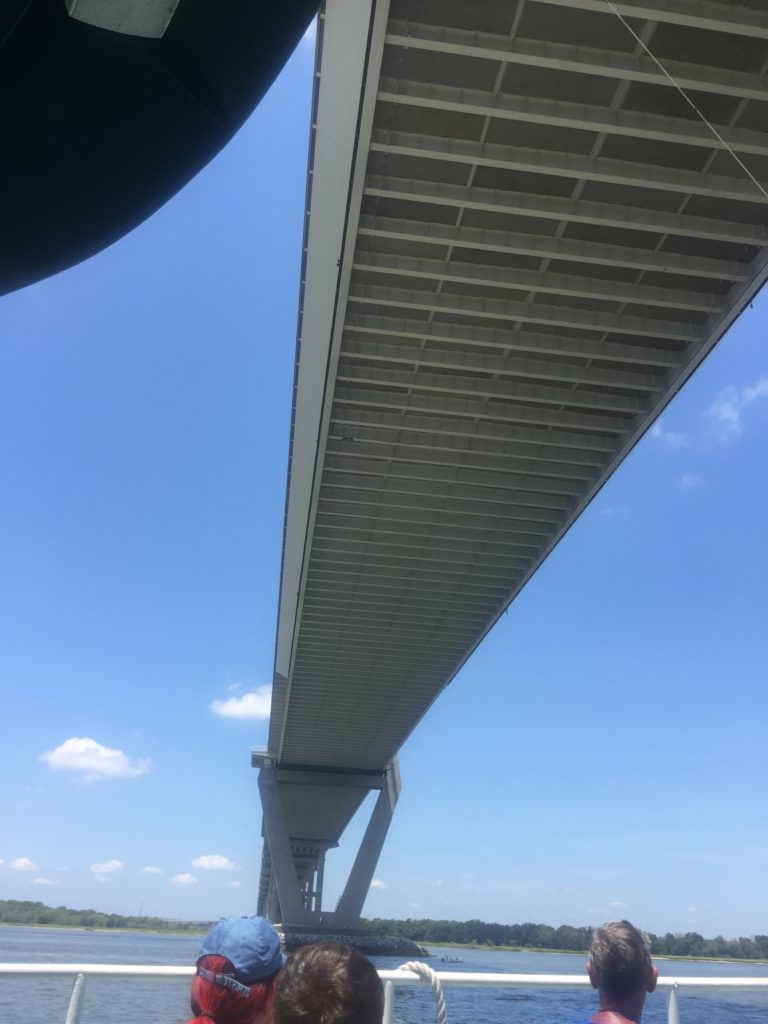 It was one of the most beautiful sounds I’ve heard. I swear the water, and the materials from the bridge, and probably the trees mixed with the sound of the horn to join in and make some kind of harmony.
It was one of the most beautiful sounds I’ve heard. I swear the water, and the materials from the bridge, and probably the trees mixed with the sound of the horn to join in and make some kind of harmony.
Our captain told us the horn would be loud. He gave us plenty of warning, and several of us put our hands over our ears as he counted down, but he told us we wouldn’t want to miss the echo. He was right, and it makes me happy that something manmade mixes with nature to create something beautiful. I know it’s not always this way. I understand it’s cooler to find something out about yourself climbing a mountain than it is getting to the top of the John Hancock building. I know not everyone finds it comforting to see church steeples above all else – that those sharp points are painful reminders that perhaps force some to look down or away and roll their eyes at the term, “Holy City.” We build houses on the water because what better view is there in the morning or any time of day for that matter, than of water glistening or green and murky? We lived through that terrible hurricane once, we’ll live through the next one. Water is peaceful. Water is cleansing. Water is holy. How can something holy be dangerous? We build forts to defend ourselves and others, but sometimes we get it wrong, and we go back. We try again when we think the tide is lower and the bridge is safe to cross.
Here’s the most haunting of all the pictures. This is the land the slaves first stepped on after being taken from their home 4,000 miles away. Those beams are the beginning of what will be a museum to honor all they’ve been through; all they’ve been put through.
Of course it’s not enough. Nothing will ever be enough. The church gets it wrong. The United States gets it wrong. We spend so much of our lives figuring ourselves out and in the time it takes to turn a corner, we see something else that changes the way we see and interact with the world.
Sometimes, though, there is harmony in this duality. As the last notes of that horn echo seemed to push to shore to be taken away by the trees and maybe even settled on the storefronts of King Street, dolphins popped up to say hello.
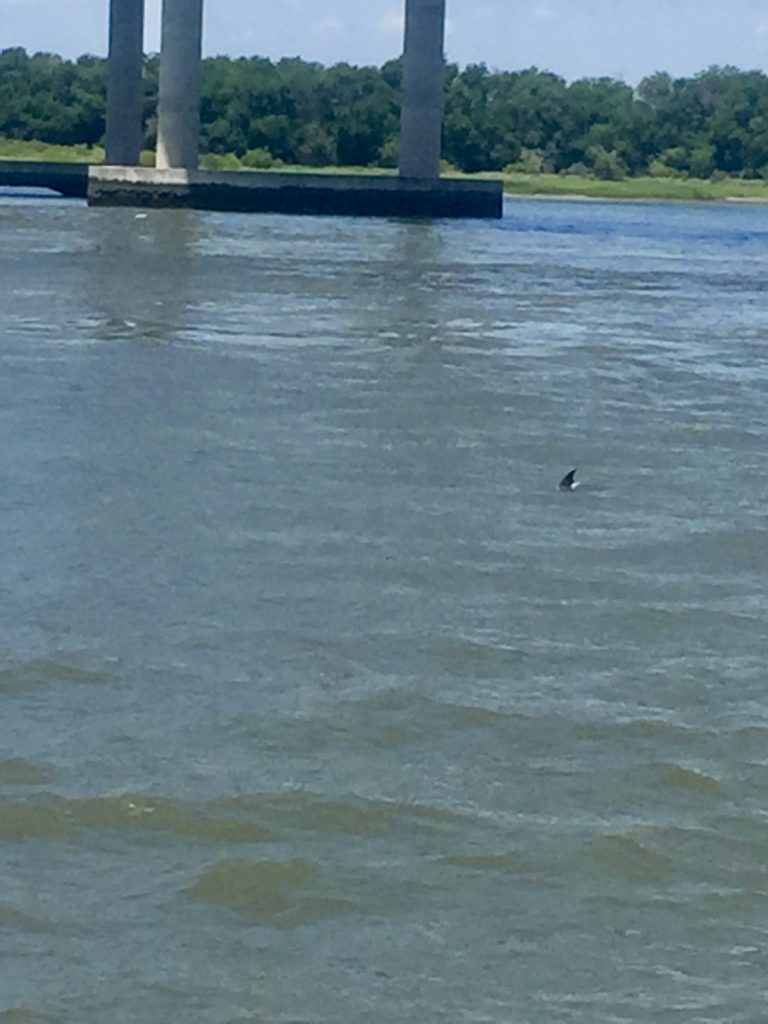 I know it looks like a shark fin, but I promise it’s a dolphin. I couldn’t catch a photo of her as she rainbowed herself out of the water. She was too fast, too slick, having too much fun rising out of the water and diving back into it again to stop for a picture.
I know it looks like a shark fin, but I promise it’s a dolphin. I couldn’t catch a photo of her as she rainbowed herself out of the water. She was too fast, too slick, having too much fun rising out of the water and diving back into it again to stop for a picture.
She thought she would swim around the same old water today, taking note of all the things she loves to look at and be a part of. She thought she’d eat the same things, do the same things, see the same things, and that would be just fine, thank you very much. She likes it here. She knows herself here. It’s a good place to be.
She wasn’t expecting to be moved by music she’s never heard before, and now what does she do in this space that holds so much contradiction but that she loves so anyway?
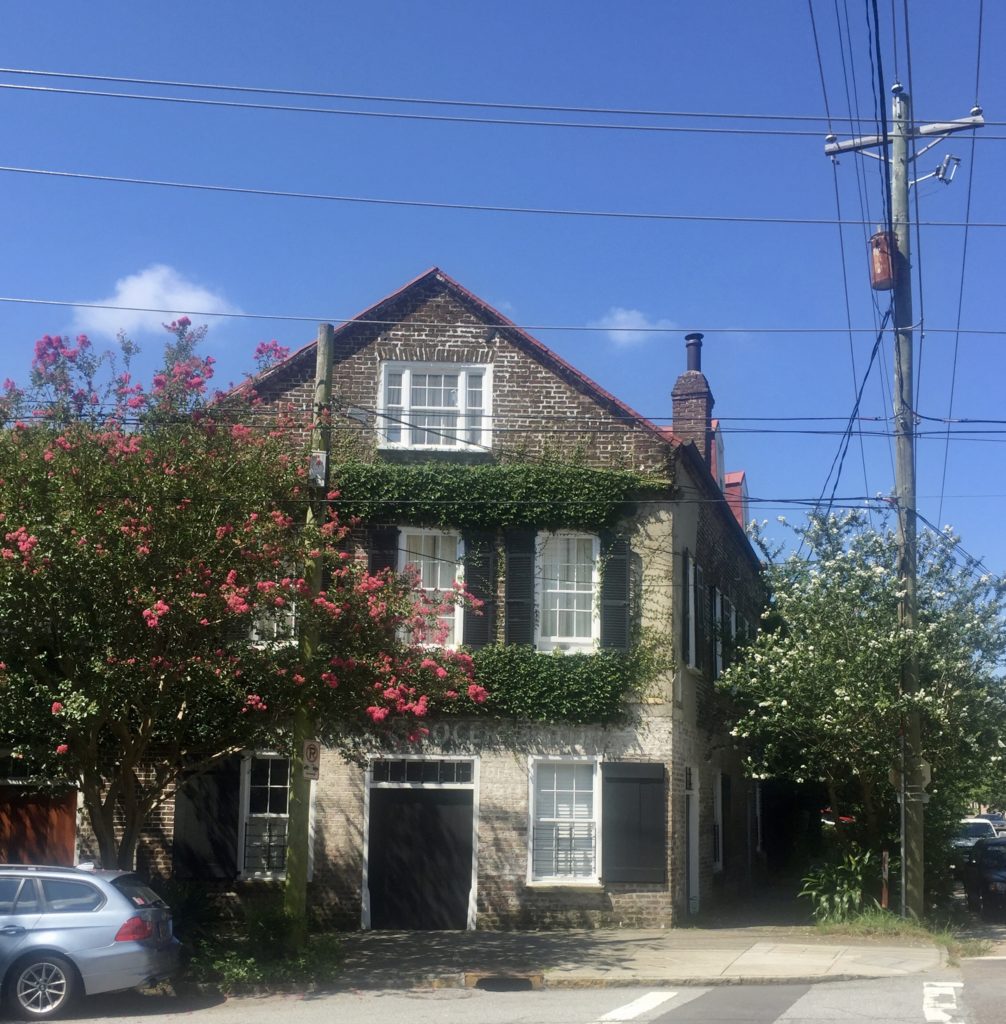
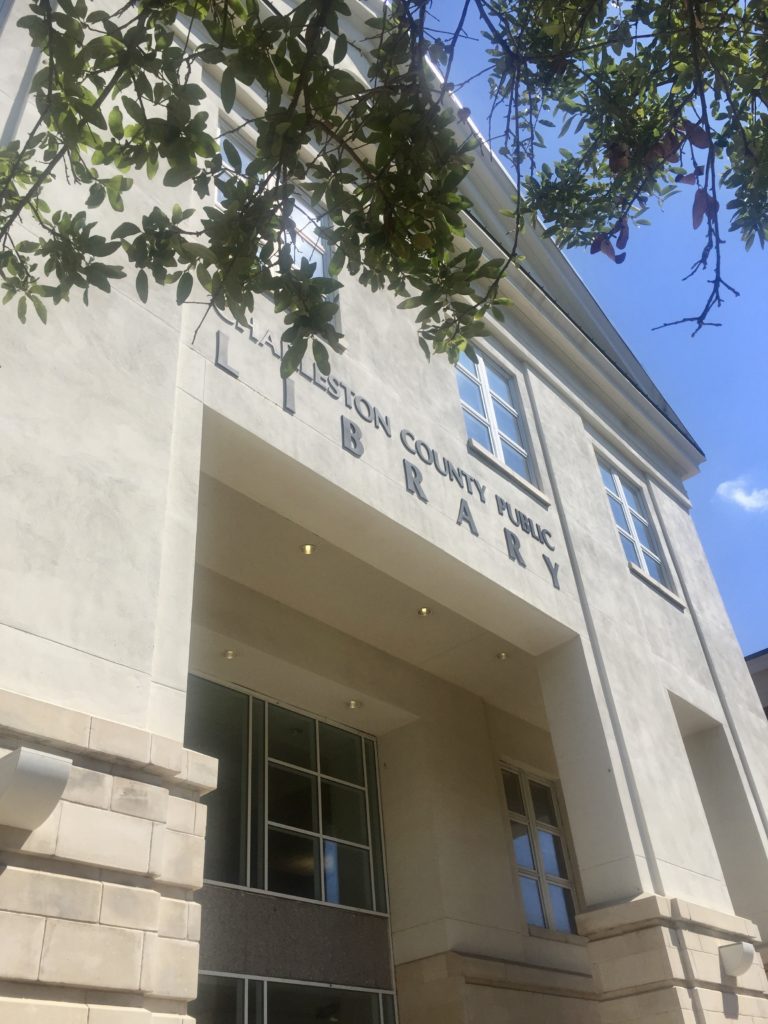
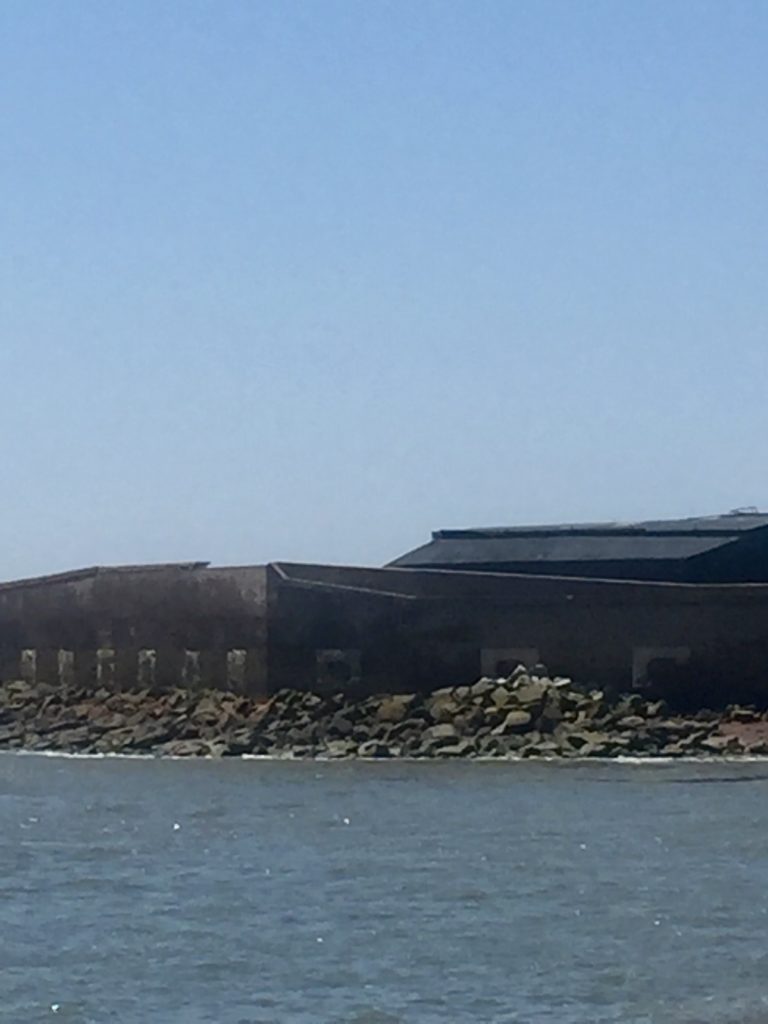
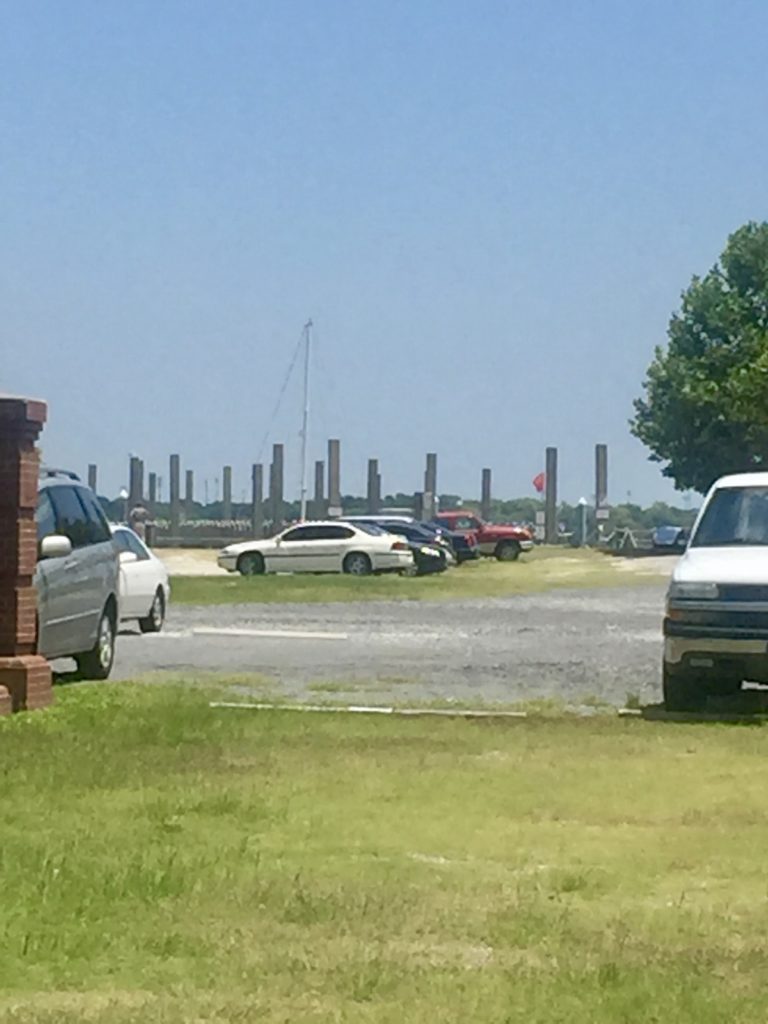

Leave a Reply